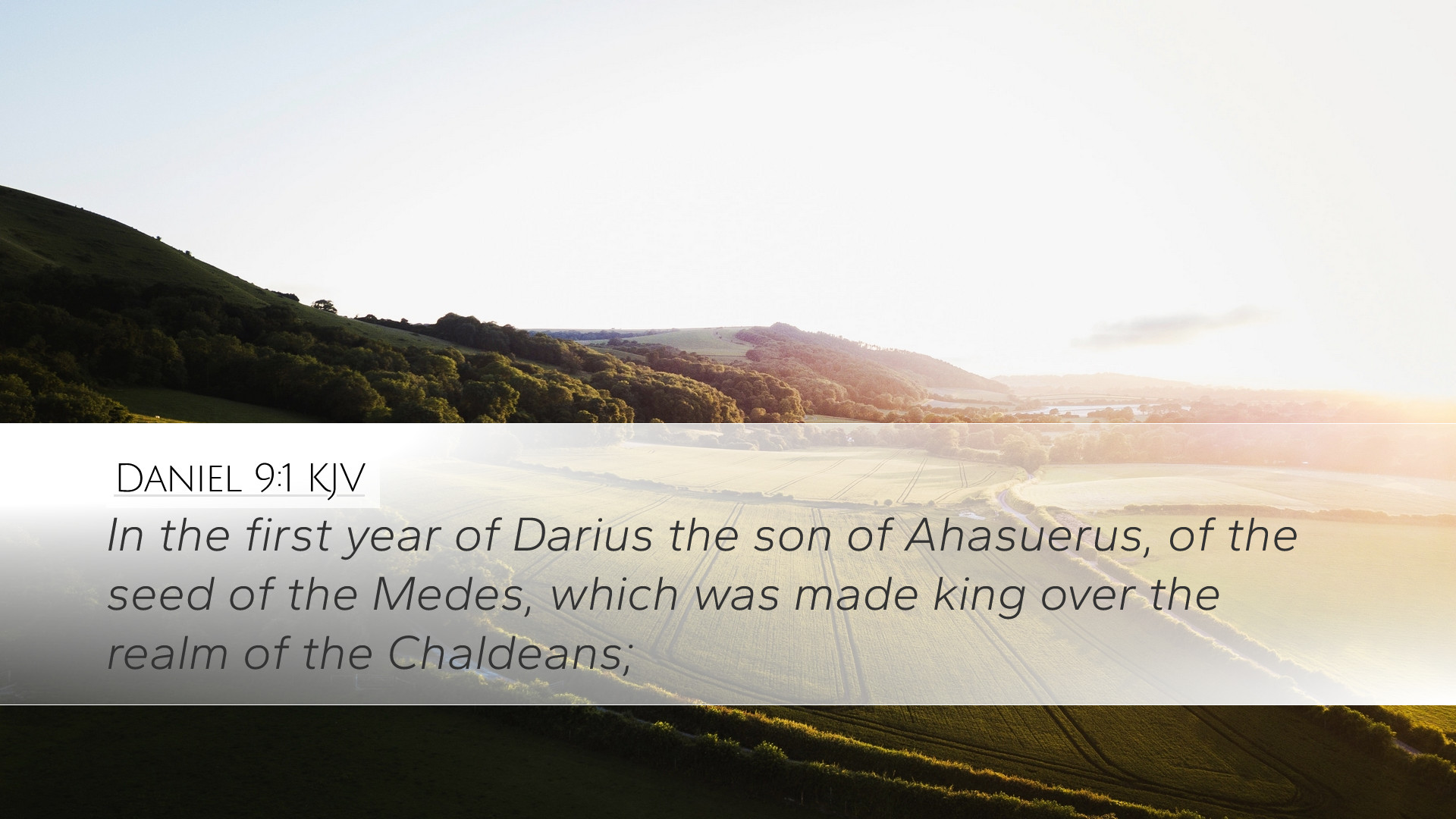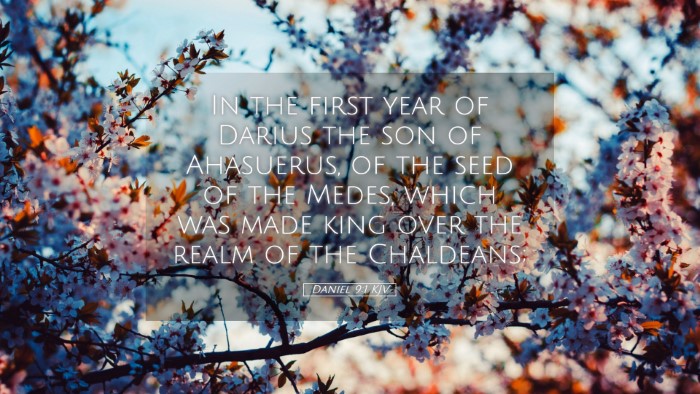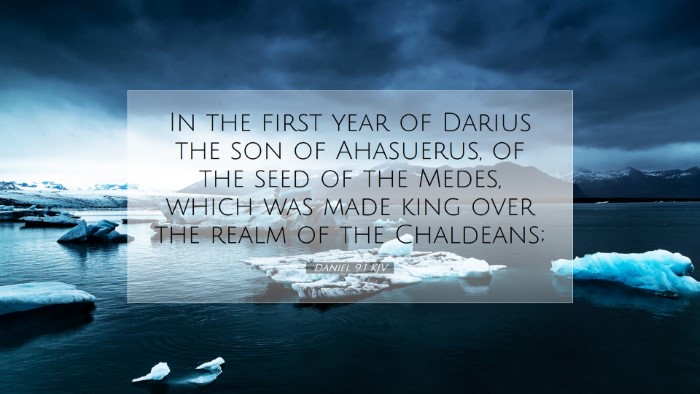Commentary on Daniel 9:1
Overview of Daniel 9:1
In Daniel 9:1, we encounter a significant moment in the prophetic narrative of the Book of Daniel. The verse states:
"In the first year of Darius the son of Ahasuerus, of the lineage of the Medes, who was made king over the realm of the Chaldeans."
This opening line sets the stage for Daniel's profound prayer and prophetic vision, occurring during a pivotal time in Jewish history following the Babylonian exile.
Historical Context
To appreciate the depth of Daniel’s situation, it is crucial to understand the historical context. Daniel's reference to Darius, a ruler of the Medo-Persian Empire, signifies a transition from Babylonian dominance to Persian rule. Matthew Henry notes that this period represents a time of transition for the Jewish people, who were grappling with questions about their identity and future.
Albert Barnes emphasizes the significance of the date "first year of Darius," suggesting it places the events around 539 BC, shortly after the fall of Babylon. This landmark moment refers not just to a change in political power but also to a profound opportunity for the Jewish exiles to reestablish their nation and religion in light of God's promises.
Daniel's Character and Role
Daniel's mention in this verse speaks volumes about his character and relationship with God. Adam Clarke observes that Daniel is portrayed as a dedicated servant of God who remained faithful despite overwhelming challenges. This deep commitment inevitably positions Daniel as a central figure in Jewish prophetic literature.
Theological Implications
The theme of divine sovereignty
Daniel 9:1 highlights God's sovereignty over nations and historical events. The mention of Darius illustrates that, despite apparent chaos and upheaval, God is in control and orchestrating human history for His purposes. Daniel serves as a testament to believers of God's providential nature, reinforcing that no power can act outside of His divine plan.
The significance of prayer
This chapter transitions into one of Daniel’s most fervent prayers, prompting reflection on the power and necessity of prayer in the life of a believer. Barnes points out that the context of prayer deepens the urgency: how Daniel acts decisively in response to his understanding of Scripture, which speaks of the length of the exile.
Exegesis of Key Themes
- Year of Darius - The establishment of Darius as king is crucial for understanding the divine timetable of restoration. As Clarke notes, this shift signifies hope for Israel and fulfillment of God's promises.
- Prophetic Timing - Daniel's keen understanding of the prophecy in Jeremiah about the exile (Jeremiah 29:10) reveals his analytical approach to Scripture. Daniel is not merely passive; he diligently seeks to understand God's plans, reflecting a model for all believers.
- Role of the Prophet - This verse positions Daniel firmly as both a seer of visions and an intercessor. His actions in response to God's message serve as an example of the active faith expected in the life of a prophet.
Application for Today’s Believers
The implications of Daniel 9:1 extend to modern believers, particularly pastors, theologians, and students of Scripture:
- Encouragement in Prayer: Daniel's immediate response to the prevailing political power was to seek God through prayer. This serves as a profound reminder of the need for believers to prioritize prayer in times of uncertainty.
- Trust in Divine Sovereignty: Understanding that God reigns no matter the earthly circumstances, believers can find assurance in His eternal purpose and plan.
- Active Engagement with Scripture: Just as Daniel sought to align his understanding with God’s Word, believers are called to have a deep engagement with Scripture to navigate their circumstances wisely.
Conclusion
Daniel 9:1 introduces a key juncture in the narrative of God's people, reflecting themes of divine sovereignty, the importance of prayer, and the prophetic role of the believer. By examining the insights provided by notable theologians, we gain a deeper understanding of the text's implications for both ancient Israel and contemporary faith communities. May believers today take inspiration from Daniel's commitment and fervor, striving to live out the lessons of prayer, prophecy, and faith in their own contexts.


